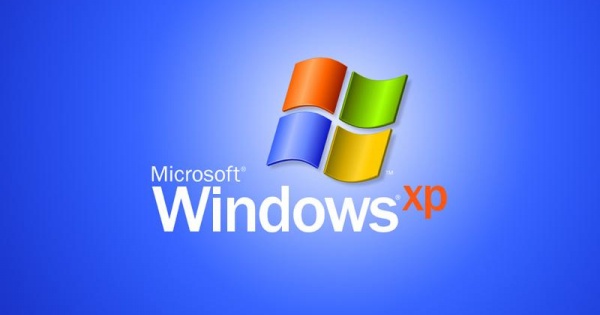The US Navy has apparently thrown $9.1 million at Microsoft for another year of extended Windows XP support. The Navy;s Space and Naval Warfare Systems Command noted earlier this year that it wanted to pay for an extension as the previous one ran out on the 8th of June.
Back in April in an advisory note, the SPAWAR said: “On 8 April 2014, Microsoft discontinued ongoing support for Microsoft XP, Microsoft Office 2003, and Microsoft Exchange 2003. Across the US Navy approximately 100,000 workstations currently use these applications. Support for this software can no longer be obtained under existing agreements with Microsoft because the software has reached the end of the maintenance period.”
According to Ars Technica (Via The Inquirer), the contract between Microsoft and the US Navy has been drawn up. For the initial year, the deal is worth around $9.1 million but it could extend as far as 2017, which would make it worth $30 million.
Microsoft's Windows XP support extension service was announced back in 2002. It was originally due to run out in 2007 but was later extended until 2014. Since this support ended, Microsoft has been hoping that enterprise users would upgrade to a modern OS, such as Windows 10 but some will end up spending the cash to keep support of XP going in order to avoid upgraded thousands of workstations.
Discuss on our Facebook page, HERE.
KitGuru Says: That's potentially $30 million in the bag for Microsoft to keep Windows XP around for another couple of years, for the US Navy specifically. If other enterprise users wanted to keep support, they would also need to spend a huge amount of money in order to have access to the updates.
Sources: IDG, Ars Technica, The Inquirer
 KitGuru KitGuru.net – Tech News | Hardware News | Hardware Reviews | IOS | Mobile | Gaming | Graphics Cards
KitGuru KitGuru.net – Tech News | Hardware News | Hardware Reviews | IOS | Mobile | Gaming | Graphics Cards




It’s literally cheaper to deal with it and upgrade, including paying developers to update programs that may not work with anything past WinXP.
What is the logic here?
not necessarily… 80 times 100.000 = 8 million… which isnt that far off from what they’re offering microsoft.
but that’s 9 million for a single year whereas if they paid for a windows 7 or 8 licence overhaul and get upgraded to Windows 10 they may never have to worry about OS upgrades again plus indefinite continuous support if Win10 really is the final but continuously updated OS
That is assuming that they are only using enough computers to equal $8M in OS charges, the price could actually be much higher. Then you also have to take into account the cost of having the technicians working to upgrade all the systems along with the cost of newly supported software to go along with the new OS bundles. I haven’t even mentioned the time it would take and the amount of bugs and issues that could arise from this. In the end they could end up paying 4x as much as they are now with quite a lot more headaches, whereas their current method of thinking is actually pretty sound: Why fix what isn’t broken?
Ignorance is bliss. Just let it go.. He obviously isn’t going to get it.
It still doesn’t change the fact that this price is on a per year basis. I can understand the struggles of switching OS such as incompatible software, developers not working on the software they’re using anymore which makes compatibility harder and all the points you’ve mentioned but these are more or less one time payments.
For as long as the US Navy want to stick with WinXP they’re going to need to be shelling out millions a year no matter what but if they upgrade, get through those months of hassle they don’t need to worry about a thing thereafter which makes everything cheaper and easier in the long term aspect of things
It still doesn’t change the fact that this price is on a per year basis. I can understand the struggles of switching OS such as incompatible software, developers not working on the software they’re using anymore which makes compatibility harder and all the points you’ve mentioned but these are more or less one time payments.
For as long as the US Navy want to stick with WinXP they’re going to need to be shelling out millions a year no matter what but if they upgrade, get through those months of hassle they don’t need to worry about a thing thereafter which makes everything cheaper and easier in the long term aspect of things
Much informative post. You must totally know a lot about these things.
Much informative post. You must totally know a lot about these things.
Cost may not be the problem for US navy. There may have custom built tools used by the navy which may not be compatible with newer OSes like Win 8.1 or newer. This type of compatibility issues is not just faced by the navy but a lot of other people who do professional works like sound engineering, Designers etc do faces lots compatibility issues with their set of applications with a new OS. A PC gamer only people can’t understand what these guys are all talking about.
Gary, you need to understand how deployment works. Deployment isn’t always about what is the cheapest, but rather what is the most efficient and the most effective for the current task, project or organization. In this case, they already have all the hardware, software and training they need to operate what they have very efficiently with little loss to time and will suffer fewer security vulnerabilities.
The ineffective and illogical thing to do in this instance would be assuming you will save a few dollars by upgrading the operating system, hardware for support of the new operating system, develop new software to function on the new operating system, replace all old tech with the new tech, train all the staff on how to use the new tech, patch all security flaws and repair all service bugs.
It may seem like buying the new OS is the way to go, but when you add all this up, plus the price large corporations have to pay in order to keep support up yearly, plus the cost of upgrading every time a new OS comes out, then you will see real quickly why they wish to stay with what they have, at least for now. There are many companies that stick with older operating systems for this very reason and it is far from illogical.
Please learn the information and reasoning behind why they do these things before starting a ridiculous argument on the internet. You may know some things about technology, but trust me when I say that you don’t know it all.
They have to change their hardware too
US navy may be thinking they are in war so upgrading during a war time with Russia going crazy… China building up military islands… upgrade could be a threat.